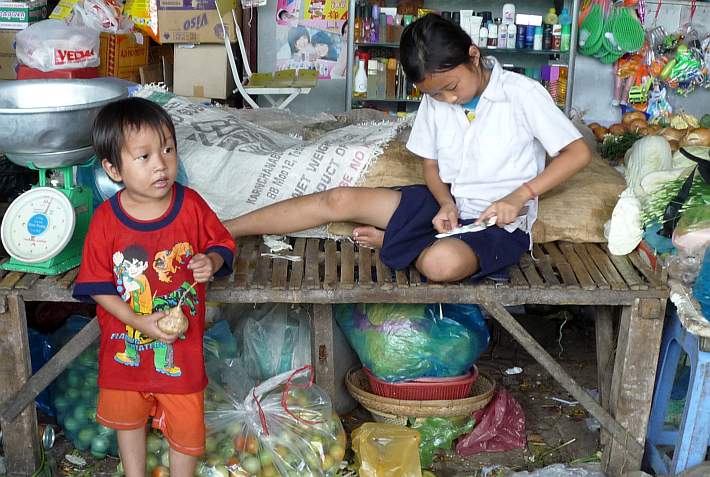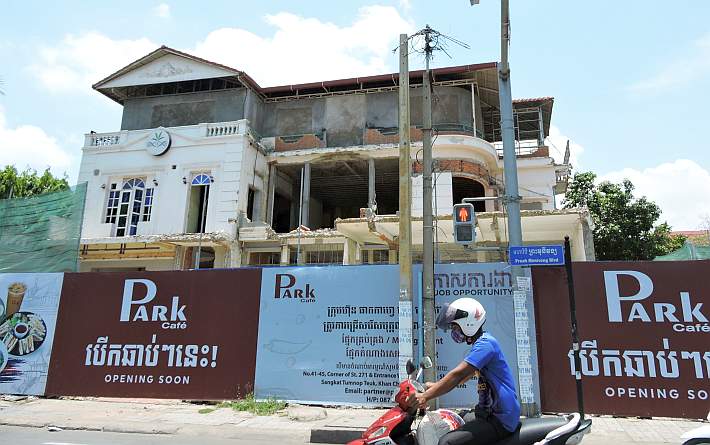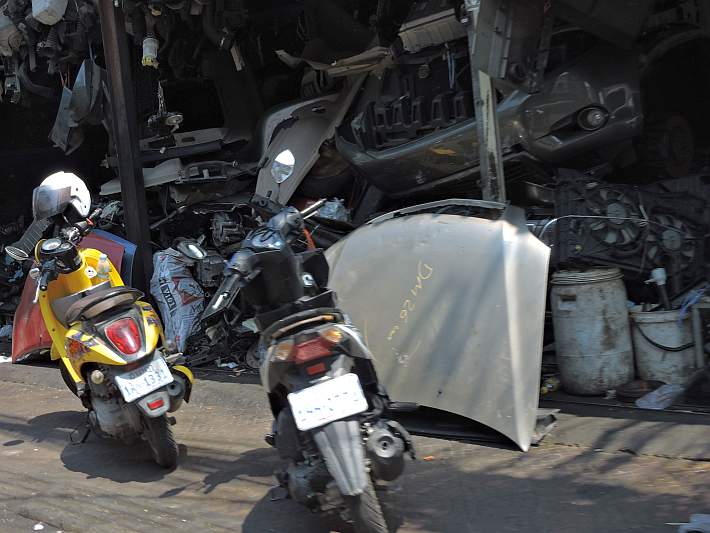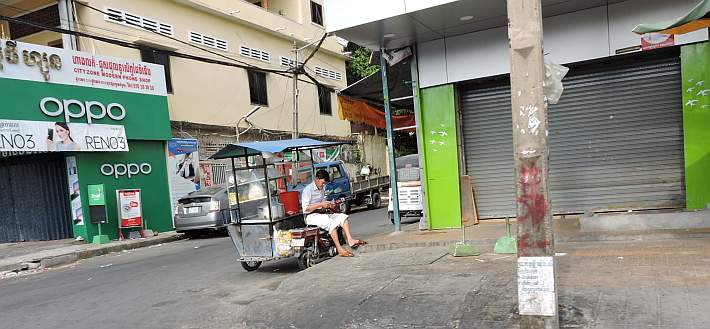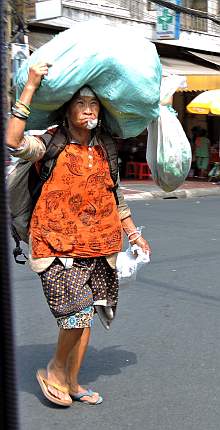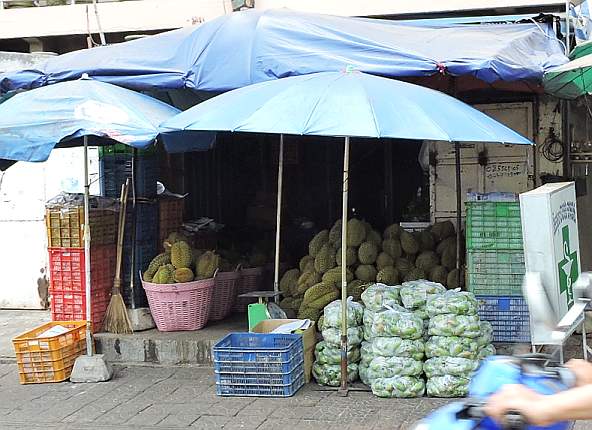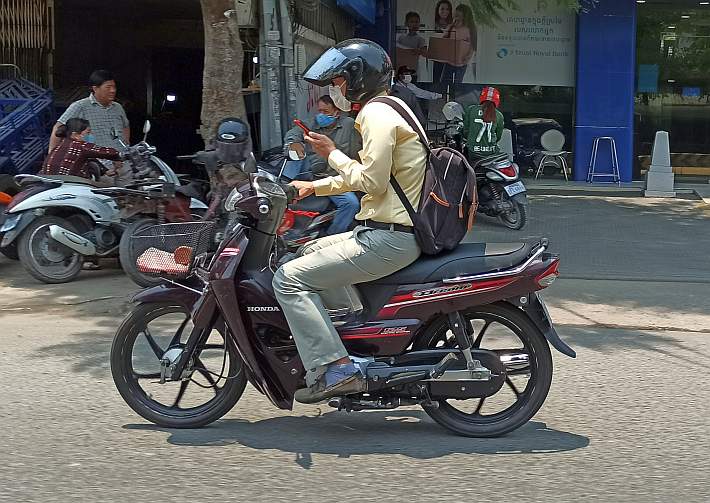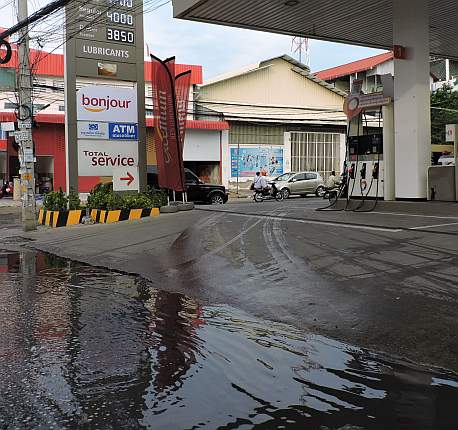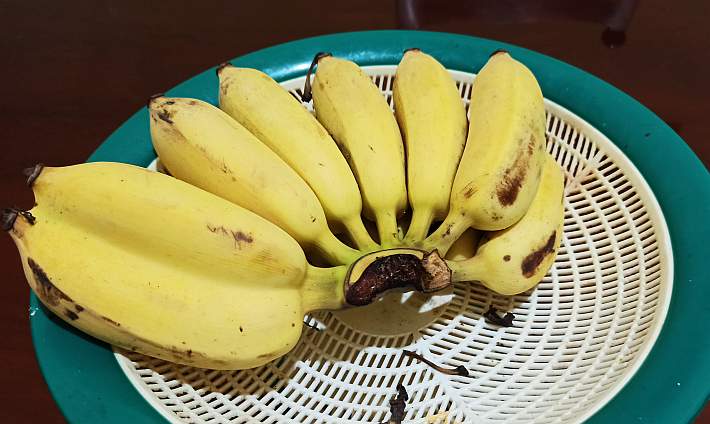
There are about a million different sizes, shapes, and colors for bananas—just not in the United States where Those Who Know have decided that U.S. consumers should be limited mostly to the one type that lives in our supermarkets. One other variation of banana that I had not encountered before establishing domicile outside the U.S. is the twin banana. They probably occur in all varieties all over the world, but probably Those Who Know don’t think they should be allowed to disturb U.S. banana eaters. Twin bananas like the ones above are relatively common here. They taste the same as single bananas but do present a logistical problem because I have to plan to have the second half at the next meal or else have someone with me to eat the twin.
